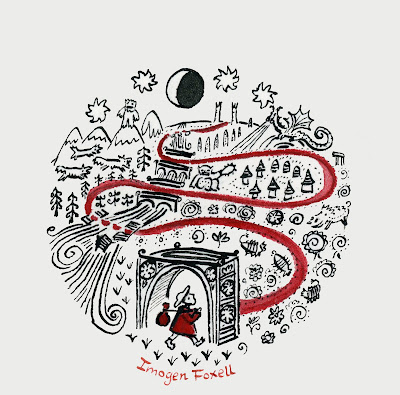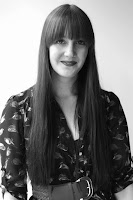DEBUT JOURNEYS Melissa Welliver
Welcome to this virtual landscape where SCBWI-BI members share their debut journeys with us.
This month Helen Victoria steps out with author Melissa Welliver, whose debut The Undying Tower is out now.
Let’s begin our journey...
There’s nothing like a good walk to fuel creative ideas and give us inspiration in our writing. Where are you taking us on our walk today?
I live in High Peak and am lucky enough to live near a plethora of walks. Today, we can take a stroll alongside Toddbrook Reservoir, made world-famous in August 2019 for the dam collapsing and the town of Whaley Bridge almost being obliterated. Emphasis on almost. Today the dam is still in a state of disrepair so the water levels are kept low with the thrum of constantly-working pumps. You’ll see as we make our way along the gravel path around the reservoir what looks like several fields and meadows beyond the barrier, but are really just the makeup of the original floor of the reservoir itself, green with life now it’s exposed to the air. It’s a fabulous place to sit and think about the constantly changing nature of story.
What about the landscape you have created in your novel? How important is the setting to your plot and themes?
The Undying Tower is set in the Avalonia Zone, a barely-recognisable reincarnation of Great Britain. Rising sea levels have carved out the land either side of the island, and the original capital of London is completely waterlogged. There are also pockets of radiation left over from a war long ago. It was important to me to use environmental themes in the book seeing as it is set in a speculative future, and this harsh landscape adds to the rising stakes for my characters throughout the novel. I based a lot of the wasteland elements on a trip I took to Chernobyl and Pripyat, where I got to see first hand what both nuclear devastation, and natural regeneration, look like when they are pitted against each other.
As the saying goes, a journey of a thousand steps starts with one. Tell us about your inspiration for your novel.
I had a very good friend, Caroline Chisholm, who died of a brain tumour in 2015. She was a sensational writer who was in the middle of a creative writing PhD and had already racked up a number of writing accolades, but she never did live to see her book on a shelf. I wanted to not only achieve the dream we had shared, but her illness got me thinking about a world where some people may not have to suffer the same way the rest of us do. If a small percentage of people were truly immortal, immune from most illness and environmental effects, how would we treat those people? Especially if they were in the minority? I liked the idea of flipping the ‘all powerful’ immortal idea on its head, and making those with the enviable ability the ones that are oppressed. And so the first seeds of The Undying Tower were sown, although it would be six years until I would see it on a shelf. The book is dedicated to Caroline, so hopefully a small part of her will be on that shelf too.
Now we have got into our stride, can you tell us what you loved most about writing this book?
My favourite thing when writing the book was the research. With other projects I have shunned the research stage, but my trip to Chernobyl really sparked an interest in what our world will be like if we keep going down the environmentally destructive path that we seem to be on today. I really enjoyed exploring the environmental elements of the book, and how they would impact a dystopian storyline when brought in as an exasperation, as opposed to the thing creating the world on its own terms.
We seem to be lost in the woods now. Can you describe your most difficult moments when you were writing and how you got back onto the right path?
This book started life with a different title and an entirely different starting point to the story. I queried it with agents in 2016 and while I got a few requests, I didn’t get much further with it. It became obvious that while the overall idea was sound, the way I was telling the story just wasn’t gripping enough for the market.
I reached out to a freelance editor, author Joanna Barnard, for an editorial critique through her website. She was able to show me that I was starting the story ten chapters too early, and I rejigged the whole story to include the cut chapters as flashbacks. Looking at my story a different way, especially after years of working on it, showed me why the original rejections were right and pointing me in this new direction all along. It was after editing the story that I started to get recognition in contests and with agents.
Therefore, when it came to editing with my publisher, I didn’t have too many drastic changes to make. I had taken on board early criticism and had found a way to implement that, so the editing process with my publishers at Agora Books was more about world-building and making the story really shine.
As we reach the summit, can you tell us how it feels to be a first time author?
It was still on the edge of what felt sensible in terms of large gatherings at the time of my book launch, so I decided on a digital affair. It was lovely for all my friends and family to attend and not have to worry about health or financial obstacles getting in their way. Digital events like that are one of the few silver linings to come out of the pandemic.
My book came out as a digital format before my physical copies were available so, at first, it felt much like how my book had always been – a file on a screen. Once I held my physical copies though, it was very strange to see my story become a 3D object, with a cover and a spine and a proper layout for the chapters. Strange, but also like that was how the book was supposed to be read, which was a lovely and surreal time for me!
My acknowledgements page reads like a list of people that raised me – because, as I say there, it takes a village to raise a book baby. A debut takes so many people to get it there – even those that never read the original book, but helped in some way on the long journey to publication. It is of course dedicated to my lovely friend Caroline, without whom I wouldn’t have even begun writing.
We’ve finished our walk and now so I think we deserve to celebrate with tea in a cosy inn. As we warm our feet by the blazing fire, tell me where you think your writing will take you in the future?
Apart from getting on with book two in the Undying Trilogy, I am working on a standalone book that shows the End of the World isn’t necessarily the end of the world. It features a smart-talking robot, romance and a girl who falls from the sky, but that’s all you’ll get out of me!
Finally, I have really enjoyed walking and talking with you today. Can you give us one take away tip for yet-to-be-published writers?
Never give up! This time last year I was at the end of a third round of submissions, in as many years, and really felt like I would never get there. It’s always darkest before the dawn.
____________________________________________________________________________________
Melissa Welliver writes speculative fiction about how the End Of The World is never really the end of the world. After studying MA Creative Writing under Jeanette Winterson at the University of Manchester, she went on to complete Curtis Brown Creative’s Writing for Children course. Her work has listed in Bath Novel Award, Mslexia, the Hachette Children’s Novel Award, and the Wells Book for Children Competition. She has been published in two short story collections and is an avid member of the Twitter writing community. Born in Stockport, she now lives in the High Peak with an assortment of doggy friends. The Undying Tower is her first novel.
Follow Melissa:
Twitter: @melliver
Instagram: @melliver
Website: www.melissawelliver.com
____________________________________________________________________
Helen Victoria is a writer of YA fiction, a full-time drama teacher and a reader of anything and everything. When she is not putting on shows, reading or writing, Helen loves to walk in wild places, or hang out with her family and friends in London, France and Cornwall.
Follow Helen:
Twitter: @helensimmons100
Facebook: www.facebook.com/helen.simmons.12
_________________________________________________________________________________
Imogen Foxell is an illustrator with a particular interest in creating intricate imaginary worlds. She illustrates English literature revision cards for flipscocards.com, and interesting words for twitter.com/OED. Her website is imogenfoxell.com. Follow her on Twitter and Instagram.












No comments:
We love comments and really appreciate the time it takes to leave one.
Interesting and pithy reactions to a post are brilliant but we also LOVE it when people just say they've read and enjoyed.
We've made it easy to comment by losing the 'are you human?' test, which means we get a lot of spam. Fortunately, Blogger recognises these, so most, if not all, anonymous comments are deleted without reading.